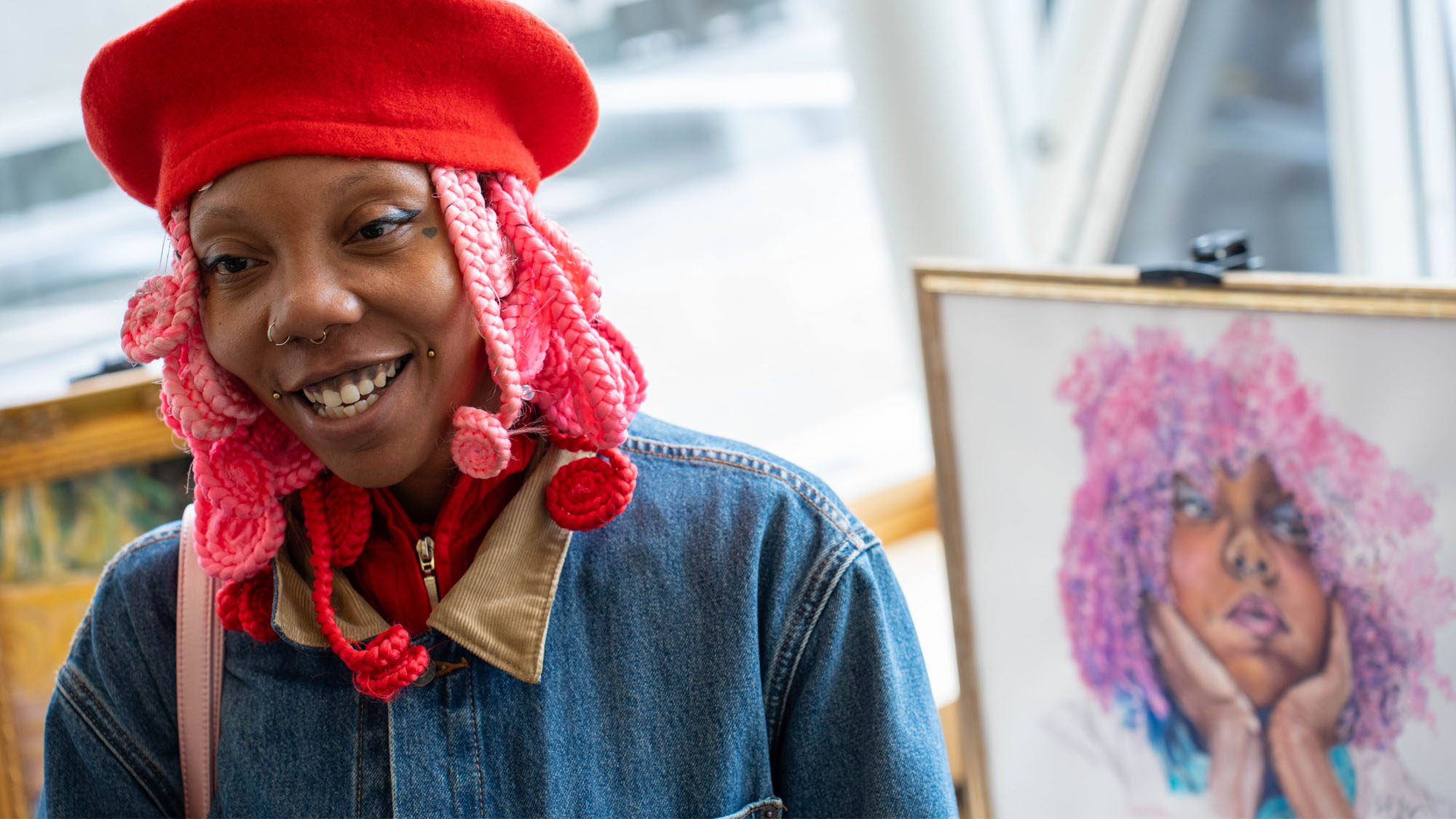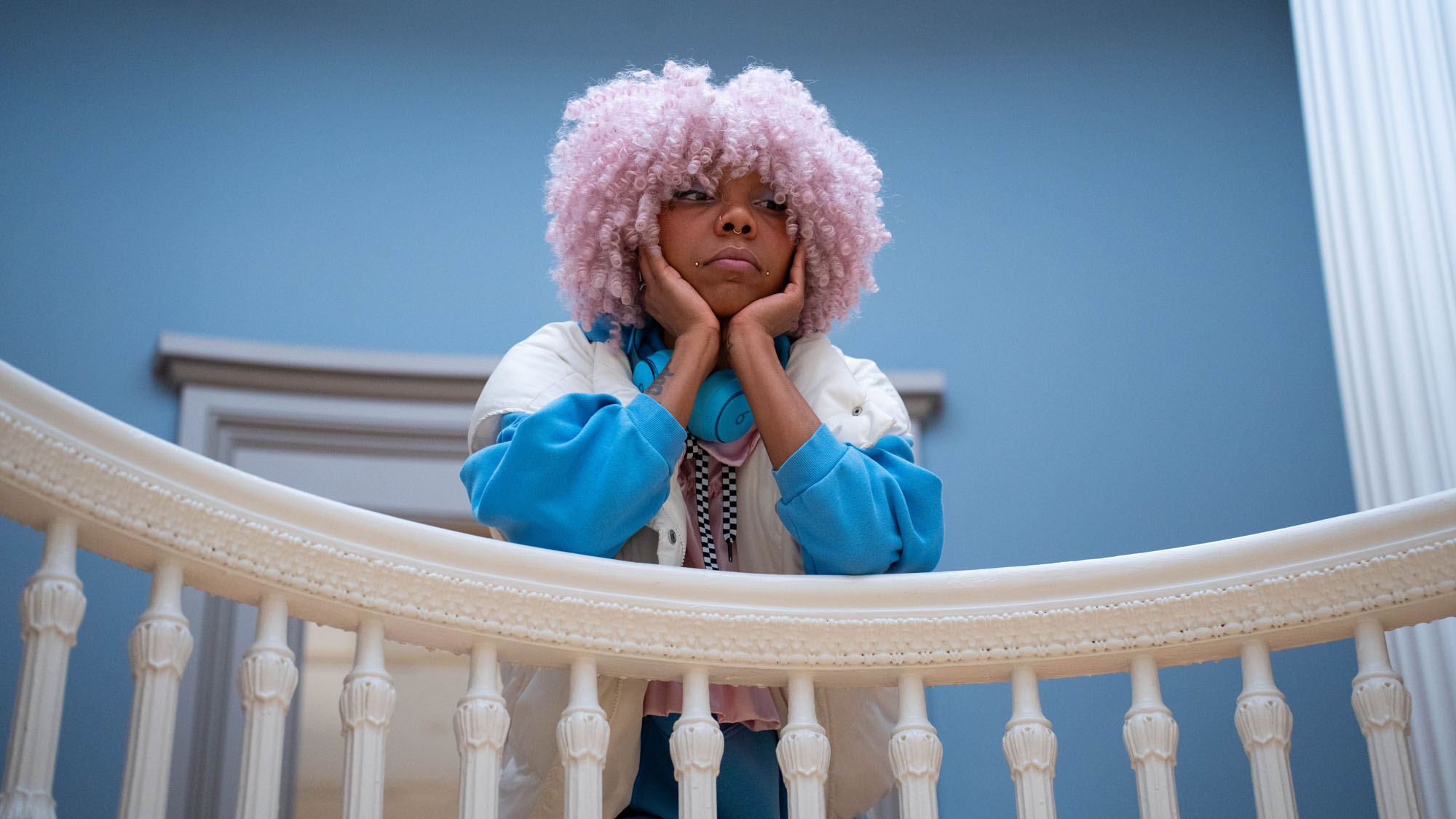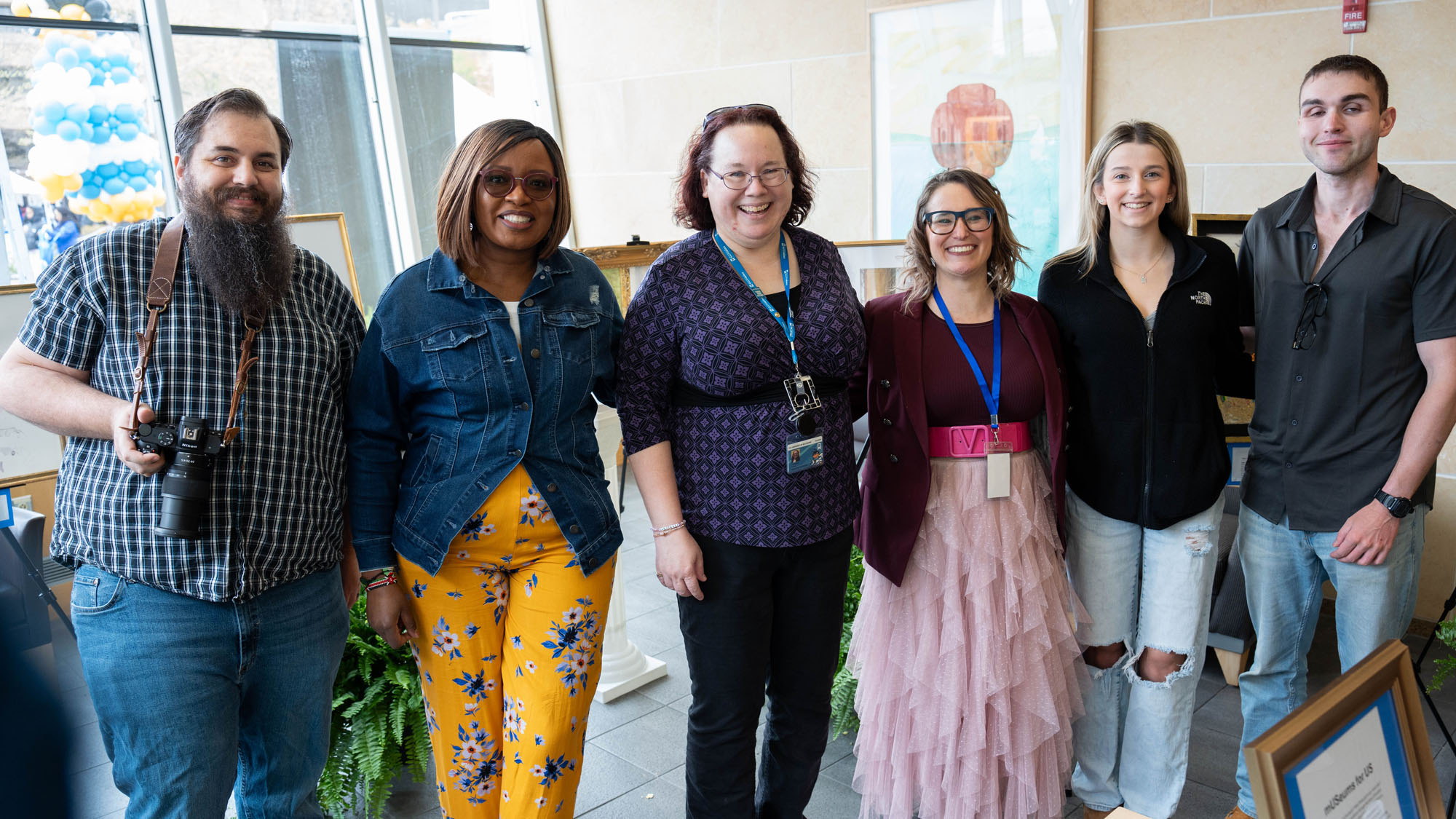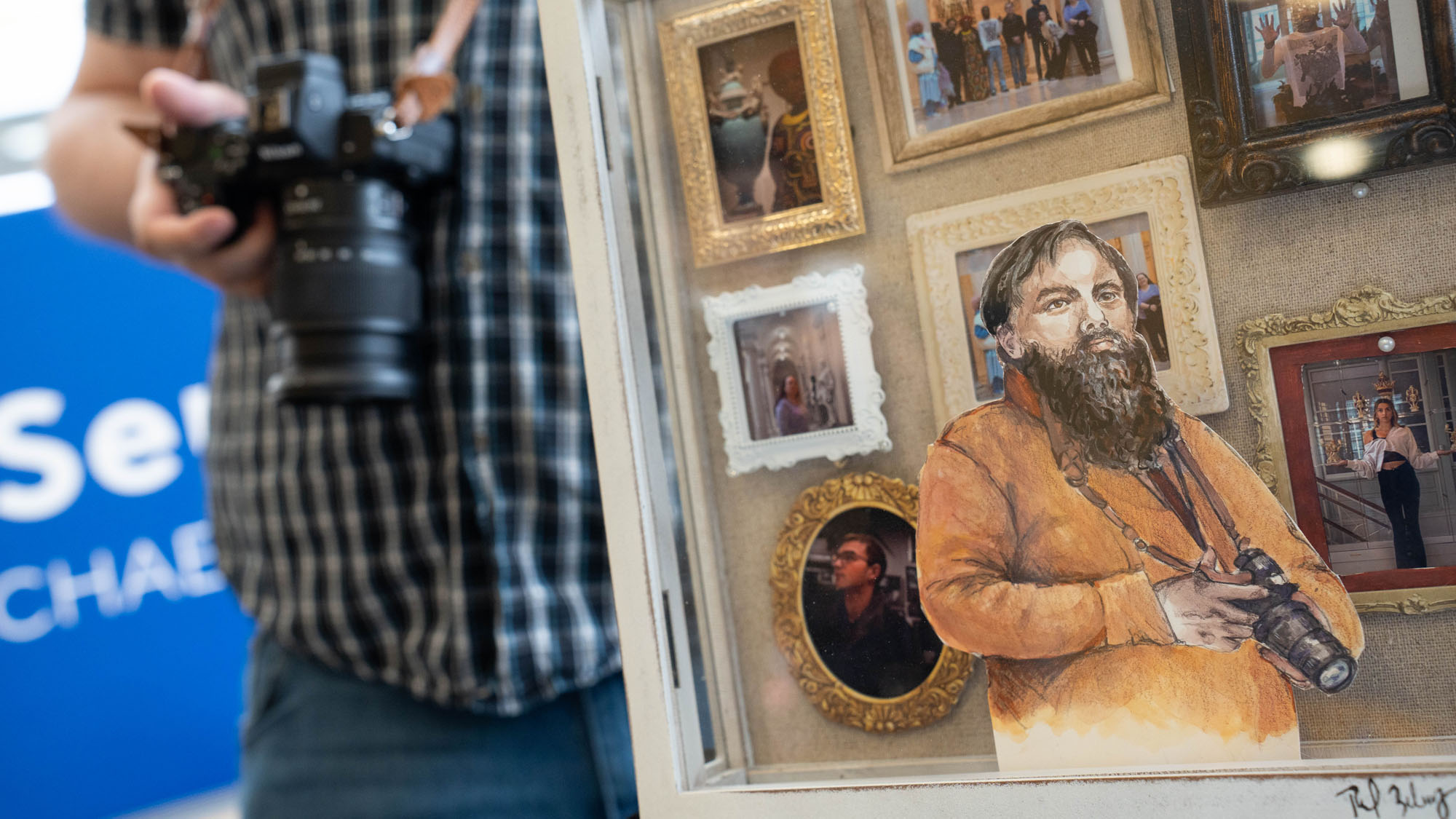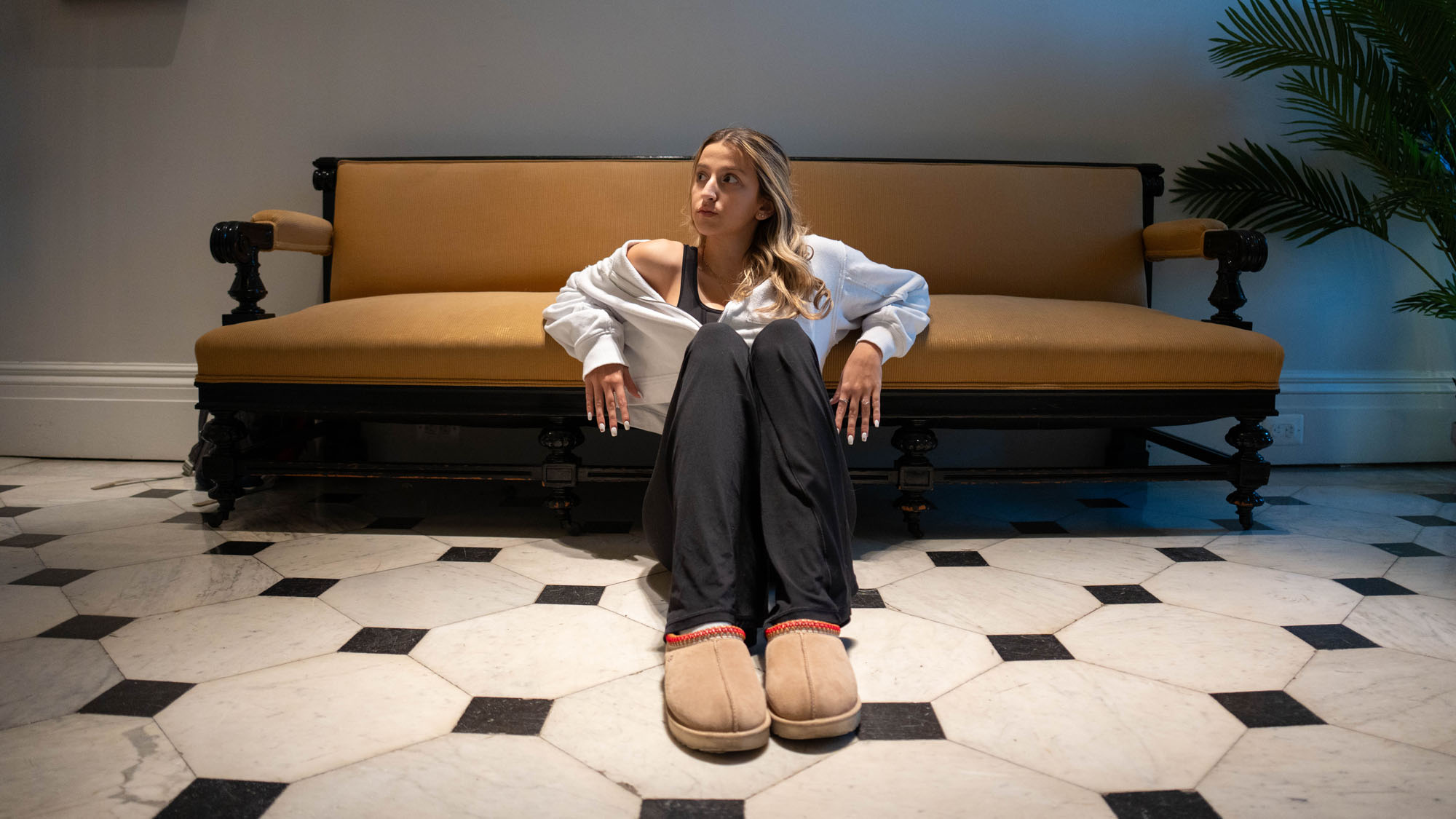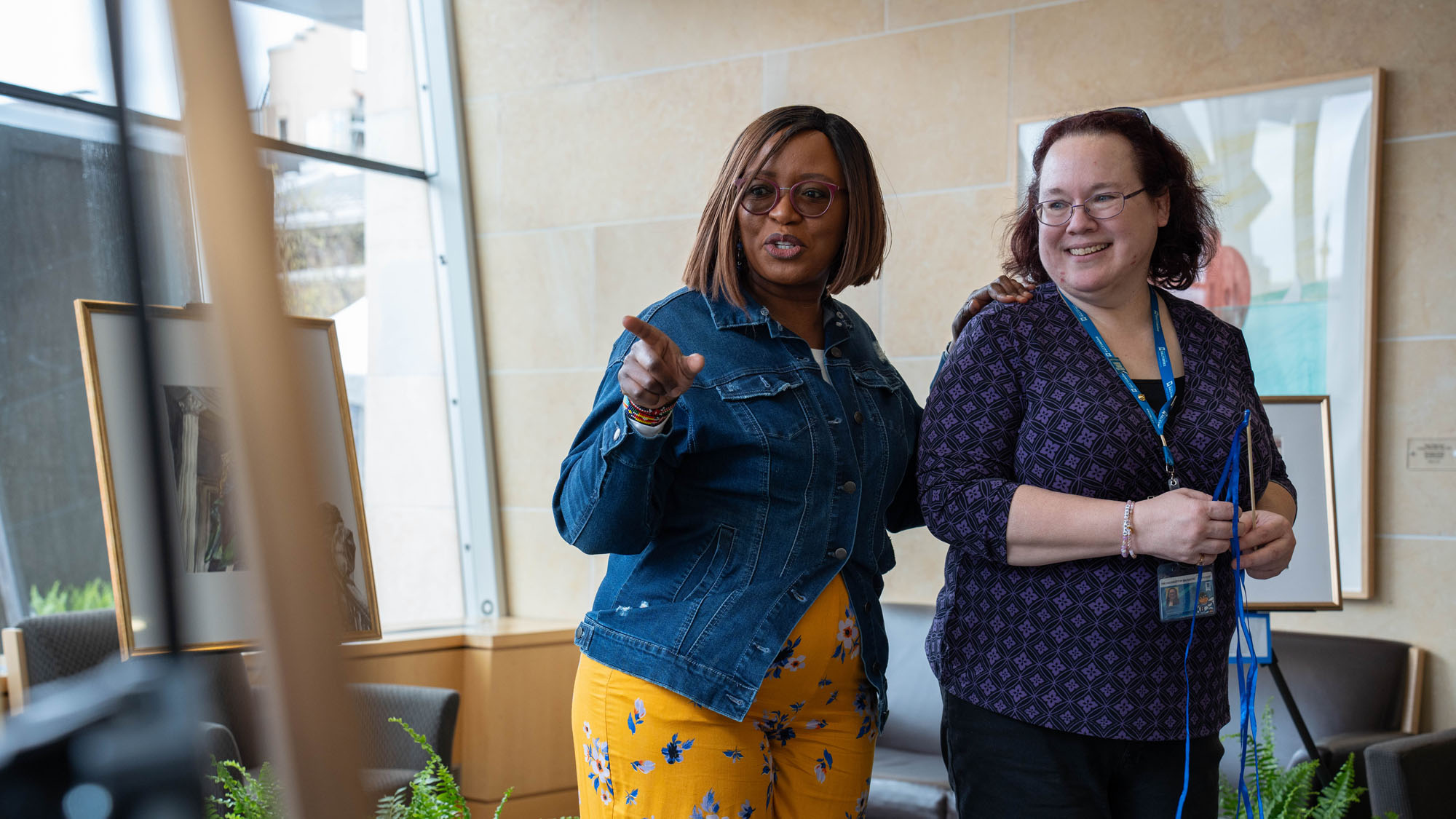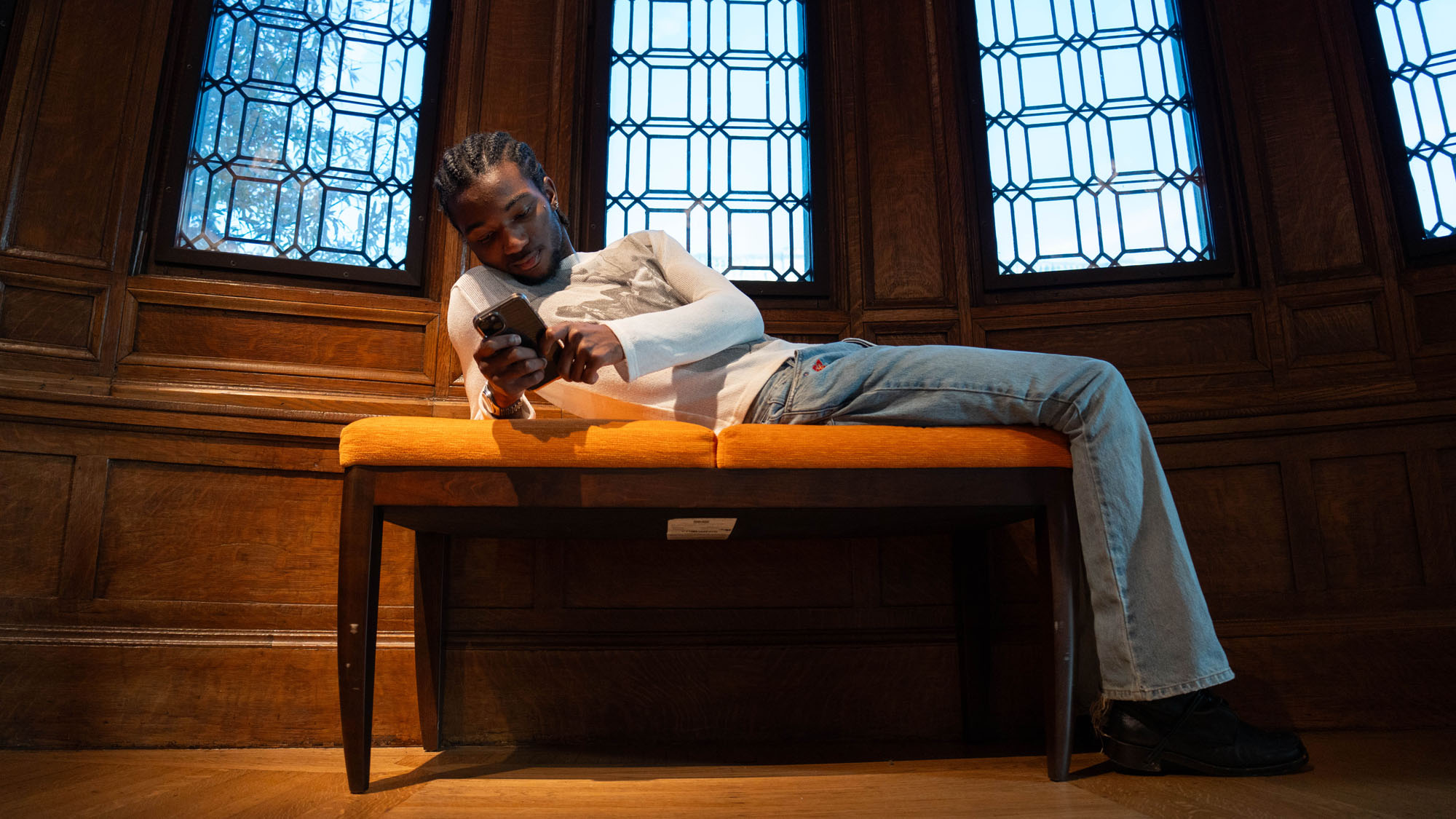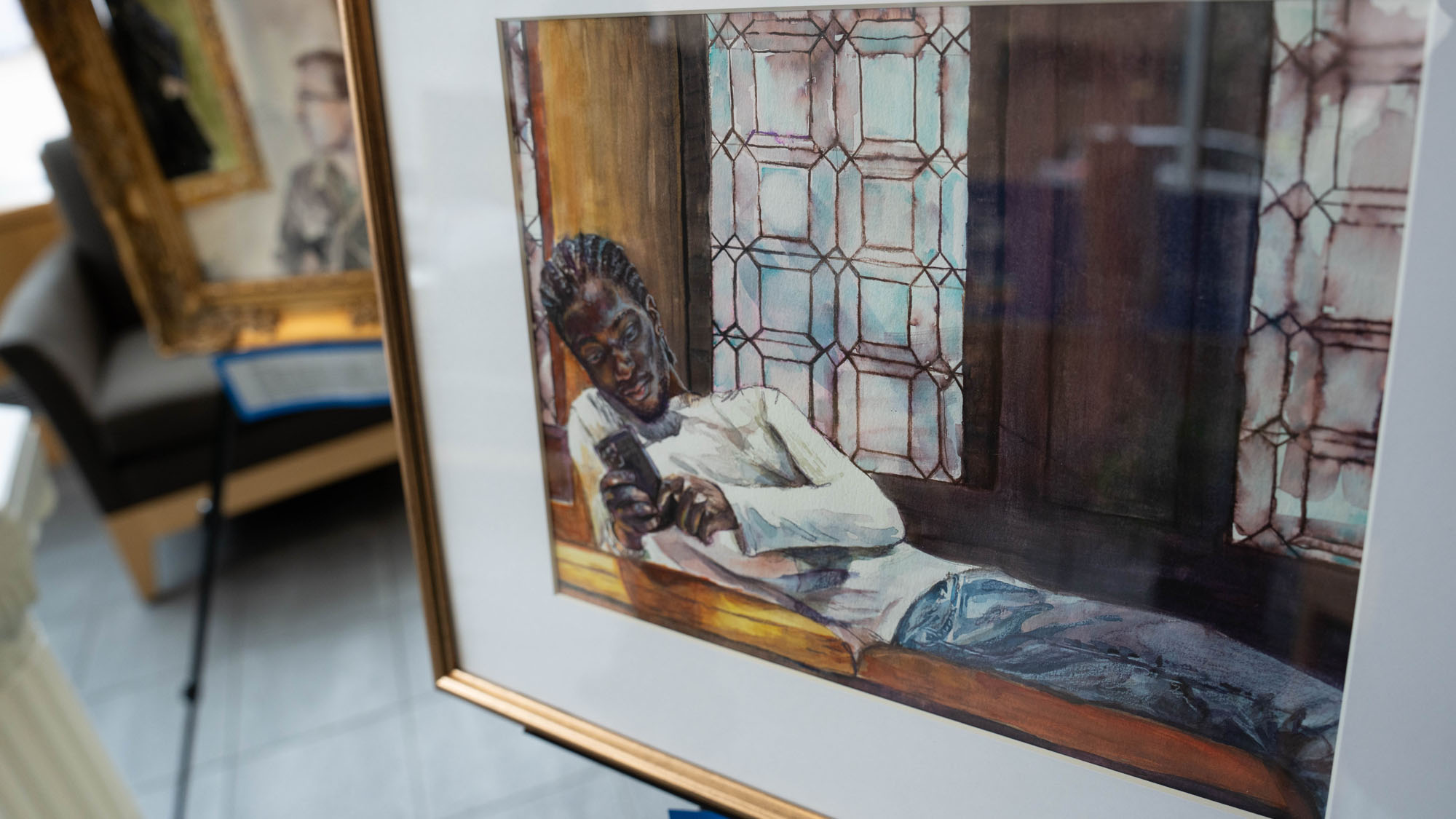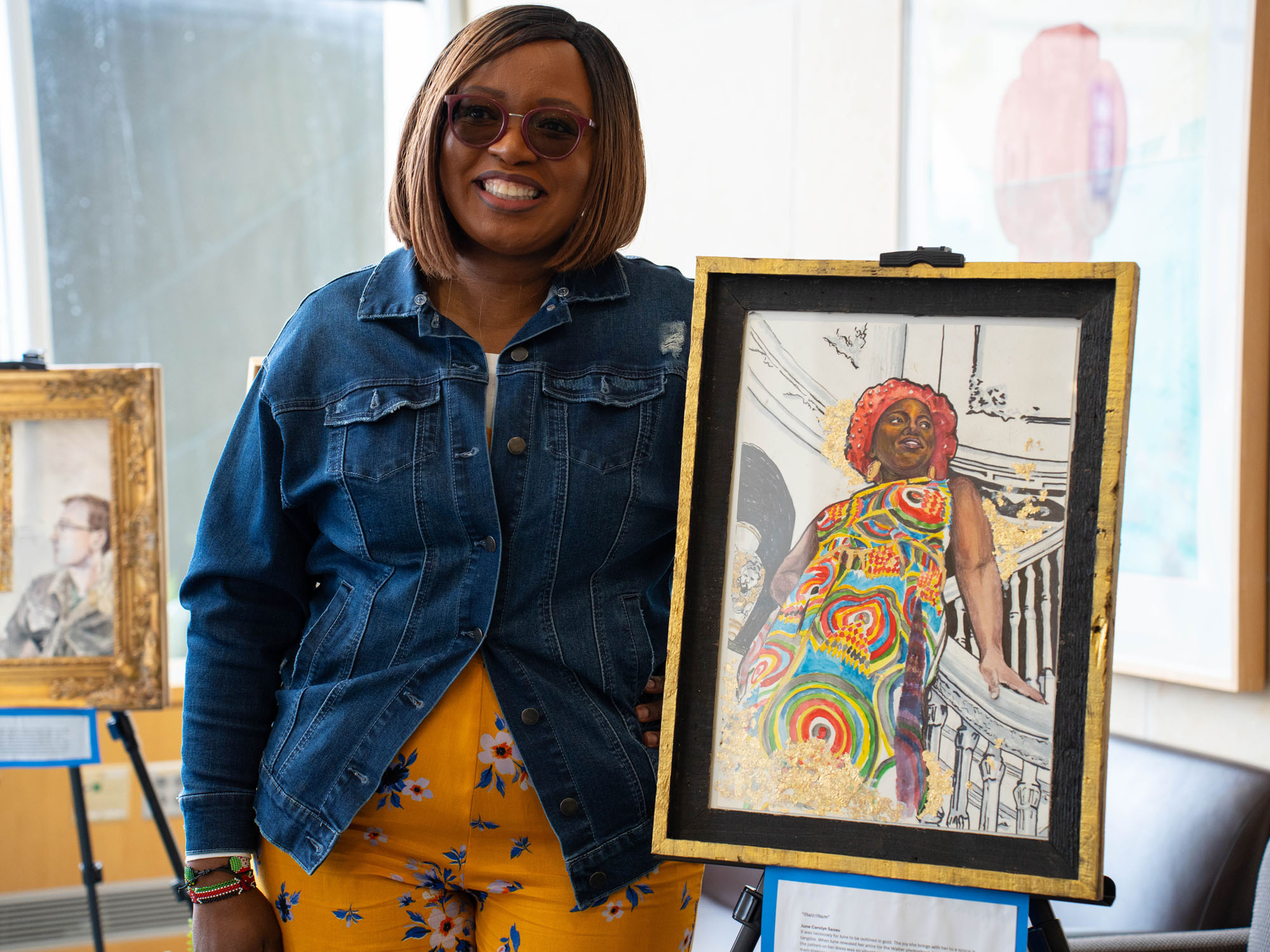
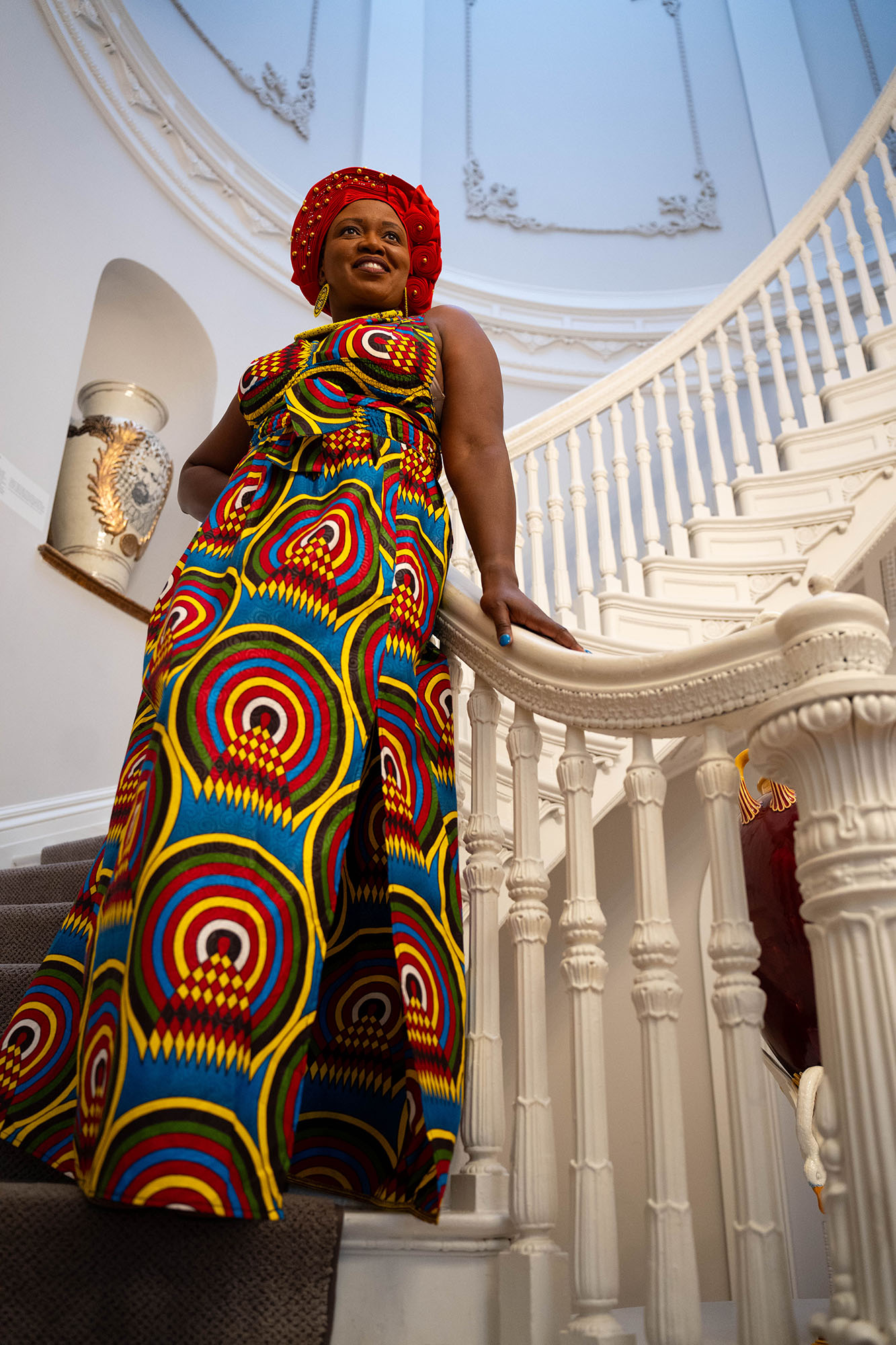
June Caroline Sasu stands in a grand staircase of The Walters Art Museum thinking about the people before her that never had that privilege.
The smile comes easy after that.
Sasu was one of a handful of University of Baltimore students to participate in a special art project led by their professor, Dr. Rachael Zeleny.
Zeleny, associate professor for UBalt’s Yale Gordon College of Arts and Sciences, has been working to understand and adapt the perspectives students have on museums and their place in them. As part of her Arts in Society class and her own research, Zeleny invited her students for a portrait session in the Walters. Zeleny used the photographs to make paintings of each participant, creating an art exhibit where the students are the stars.
“There is this belief that art has to be by someone who has a degree and has to be featured in a space that is typically only reserved for a certain population,” Zeleny said. “I’ve been challenging that as much as I can and, throughout the class, watching that confidence build that you do not have to be trained to experience a lot of benefits of both making and viewing art. It's about creating narratives about who really deserves to be in these spaces, and to believe that a space should do everything it can to be engaging to the public.”
Each of the 10 paintings took Zeleny about 10 hours to complete. She used gilded frames to display the final results so her students could envision themselves as museum-worthy art.
She unveiled her works at the University’s Centennial Rock the Block event and is looking for future exhibition opportunities.
Through the course, Zeleny took her students to visit several museums and artists, and tour studios, galleries and public art displays. At the start, some had never been to museums and others had but didn’t like them.
Skye Hendrix, a B.A. in Philosophy, Law, and Ethics student, admitted she found museums boring. With each exposure, her feelings softened.
“Every piece has a story and being able to experience that with so many different museums that we went to was life changing,” she said.
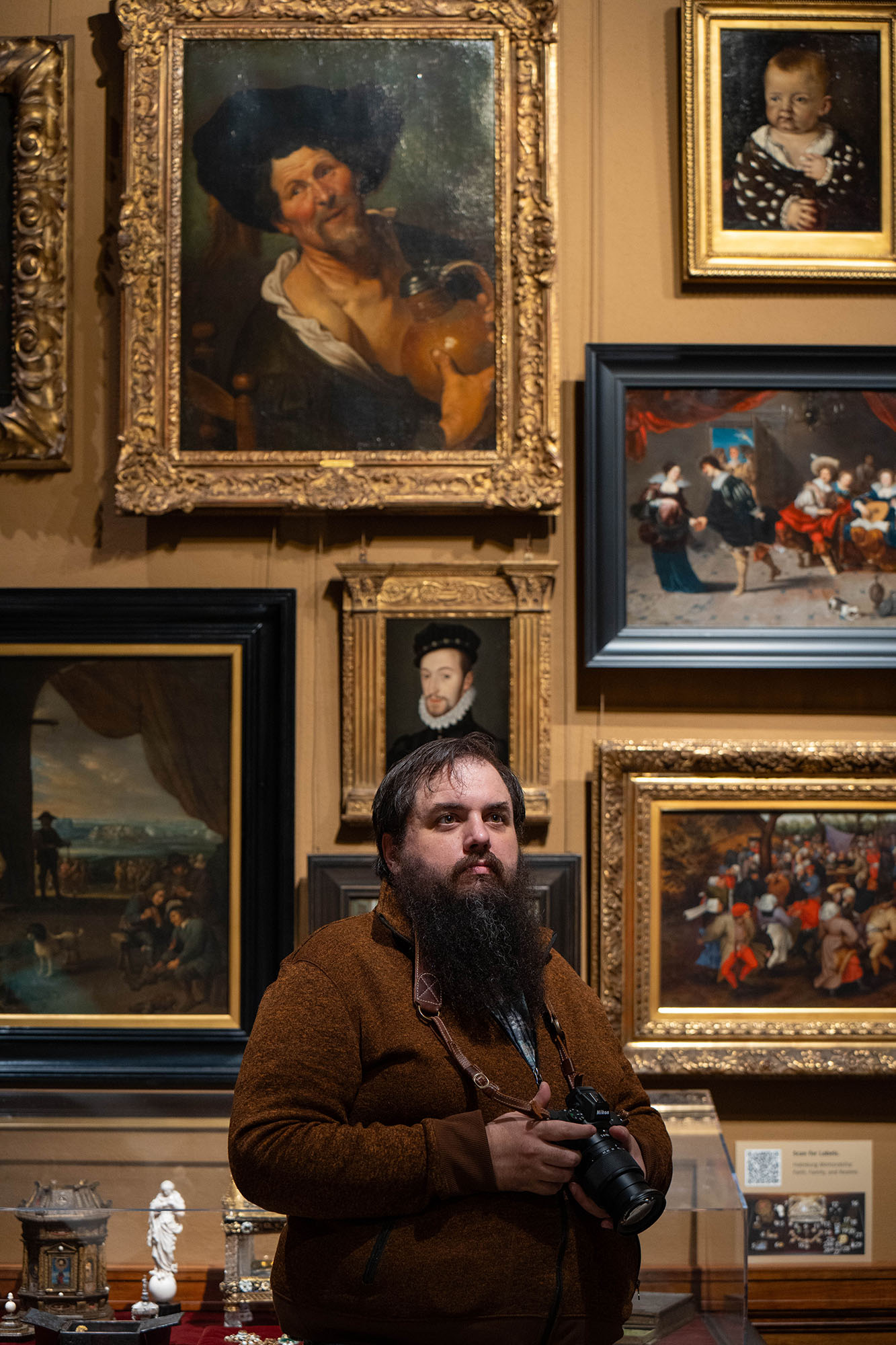
Slowly, Zeleny won over more students.
“It was just one of the most interesting and engaging and worthwhile courses that I've ever taken,” said David Blum, a B.A. in Arts Production and Management student. “I've taken a lot of college courses in the distant past, at other universities, but I've never taken one quite like this one. The fusion of art history and literature, with this incredible, interactive component where we went to museums, we engaged with the art on a really interesting level, and we also created artworks, it was a blast.”
The field trips were only a piece of the experience that Zeleny had in mind. The culmination of the class was the Walters visit.
Zeleny shared with her students her ambition and then the invitation. They added their own flair.
Ashmara McKay, a B.A. in Digital Communication student, wore a vibrant outfit she designed. Working with one suggestion from Zeleny to “take up space,” she started walking through the historic Hackerman House. Her portrait captures her in thought, soaking in the history while leaning into a rail at the top of the grand staircase where Sasu posed.
Now traversed daily by museum visitors, these stairs would have once been off limits to most, particularly Sybby Grant, the enslaved woman who cooked for the family that resided in that building when it was their home in the late 1800s.
Taking her place at the top of the same stairs felt, to McKay, like a statement carved into time.
“I've always learned about museums being out of reach for me, like a barrier, and that's what we discussed in class—how to break the barriers in different types of art, how we're all connected to art, and how we can actively participate in these spaces,” McKay said. “This is what that project meant to me, a way that I can participate in these spaces and feel like fine art myself.”
Heintz Delany, a B.A. in English major, felt like he wandered into the opportunity to become art and found the chance and the results incredible.
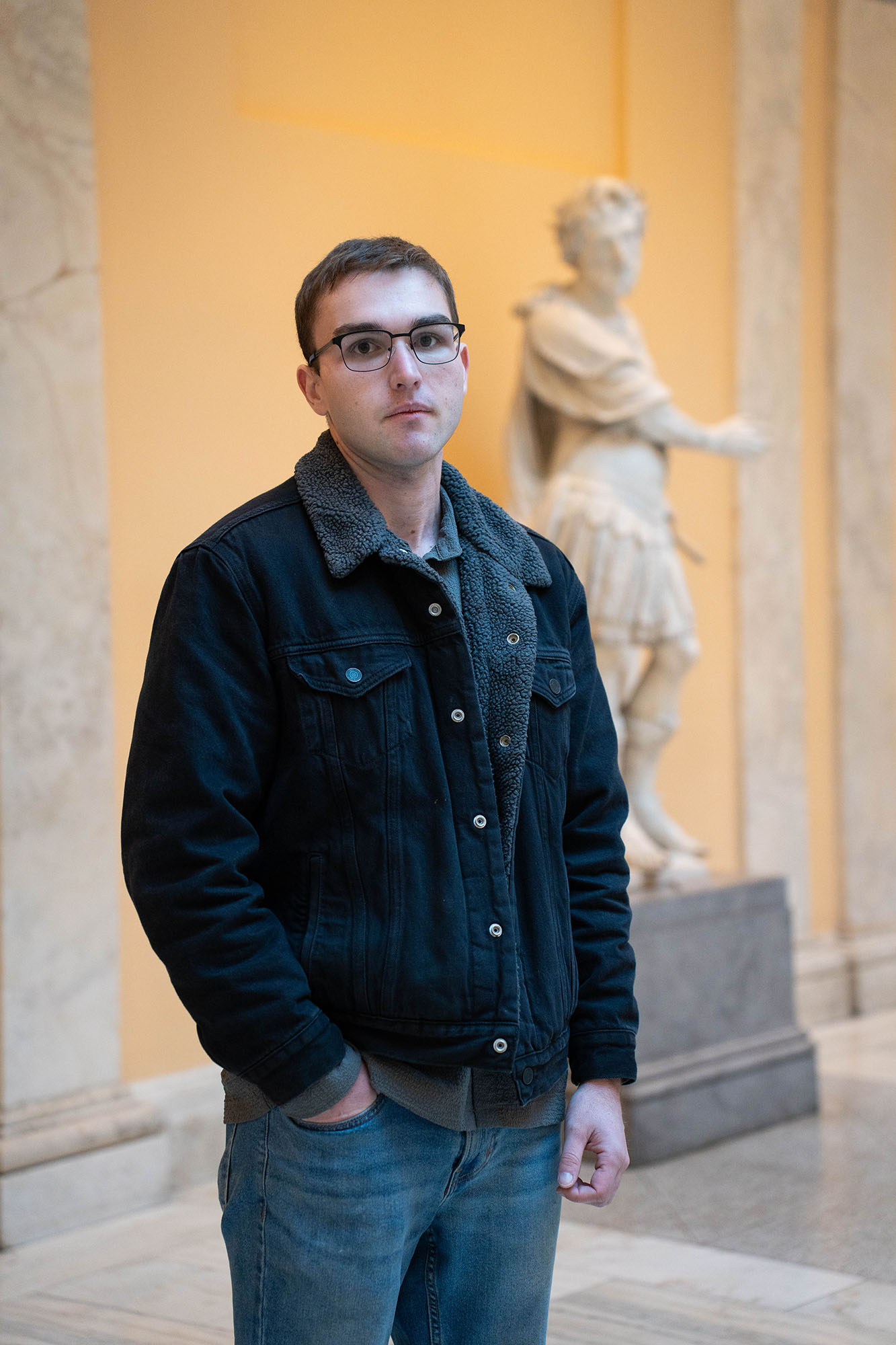
“It's a little uncanny,” he said looking over his painting. “I was in Air Force ROTC, and they do like photos every week of you like, they capture everyone marching around. I’ve seen a photo of myself with that exact coat in a similar shot. It's crazy just to see it drawn.”
Dhem Stark was left with similar awe, from the project, the class and Dr. Zeleny.
Stark, a B.S. in Business Administration major with an accounting concentration, enrolled in ARTS 201 with little enthusiasm, just the idea that she needed to fulfill her remaining general education credits. Now she’s recommending the course to everyone.
“I never imagined for a second that it would be this fabulous. It really is incredibly fabulous.”
Sasu, a B.A. in Legal Studies major, has spent much of her adult life forcing a love for art that matched her son’s growing passion. She took him to museums she didn’t enjoy because he did.
She tried an art history course at a community college, but Zeleny’s course was like discovering a missing piece in her art education.
“This class absolutely changed not just the way I see or understand art to be—it's not just the Renaissance painters, the European painters of the Impressionism era, art is everywhere. It's every day. It's in buttons that people put on jackets, it's in colorful hair and expression in clothing, it's in how do I see me and how do people see me?”
When she saw Zeleny’s portrait of her, she found some answers.
“I felt seen. I actually felt seen. I felt appreciated in my own way of expressing my art, which is through my fabrics, through what I wear,” she said. “I had never seen the interior of the Hackerman House before. To stand there and feel grand and be photographed and then painted in a space reserved traditionally for not for people like myself, it was very poignant. I'd never understood art this way until now.”
Behind the Project
As part of her Arts in Society class and her own research, Dr. Rachael Zeleny invited her students for a portrait session in the Walters Art Museum. She then used the photographs to make paintings of each participant. The portraits were unveiled at UBalt's Centennial Rock the Block.
